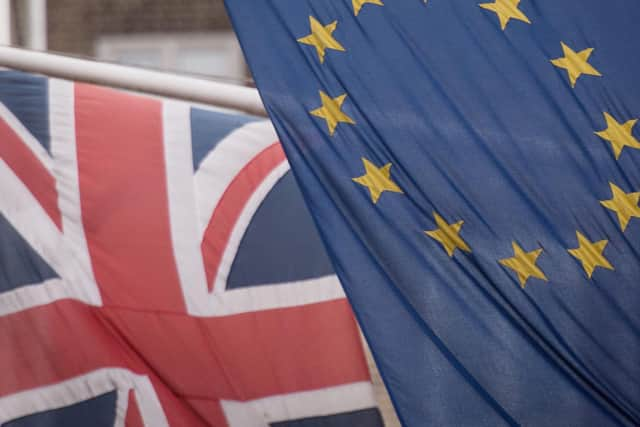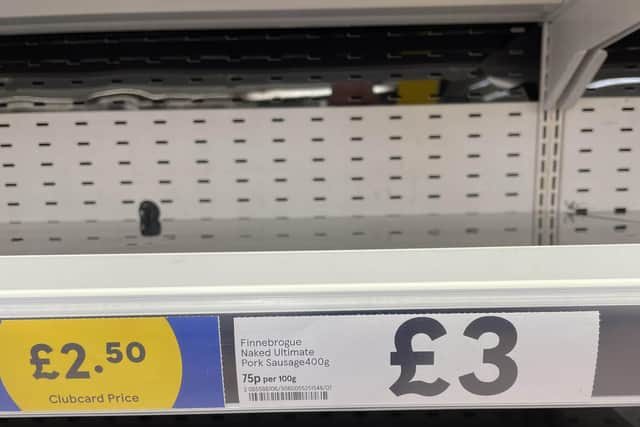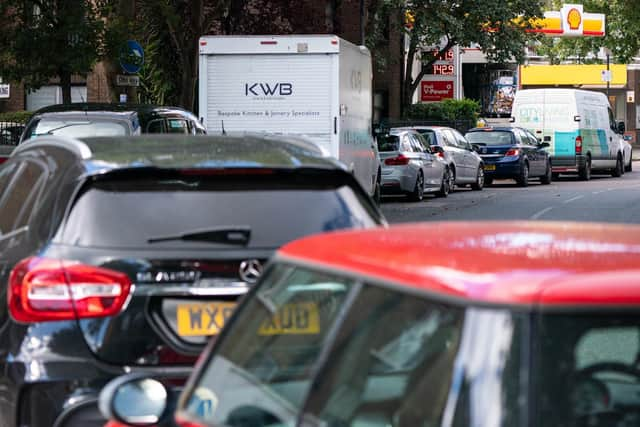High prices are here to stay, this is not what Brexiteers promised us - Mark Casci
I’ll share my story of how he once mistook me for former Bradford City manager Stuart McCall another time but arguably the most memorable came when I visited his North Yorkshire home in 2009.
Sir Ken had by this stage only just retired from the supermarket which bears his name and had just been appointed president of the Yorkshire Agricultural Society – hence the reason for my visit.
Advertisement
Hide AdAdvertisement
Hide AdSitting in his stately office over a cup of tea I launched into a rather long-winded and wordy question about whether or not a growing propensity for the public to buy British would mean a brighter future for the region’s farmers.


After I finally shut up, he peered over his glasses and replied: “I am not quite as convinced as you are that people want to buy British. What people care about is value.”
His words have been ringing around my head this past few days, purely and simply for the reason that value is about to become a very big deal indeed for consumers – far more so than either of us in 2009 could have imagined.
At time of writing getting hold of fuel is a major drama. The long-standing issue with HGV drivers is beginning to mean an ever-increasing list of day-to-day consumer goods are in short supply. And while Government has finally relented against its previous ideological opposition to allowing additional HGV drivers from the continent into the country, the figure is nowhere near sufficient to meet the gap in vacancies that this country currently has.
Advertisement
Hide AdAdvertisement
Hide AdMinisters and their supporters in the London-based media have consistently attempted to blame the crisis on the DVLA and, while consecutive Governments have failed to address this issue, the current administration was consistently warned that a poorly thought-out Brexit deal, based on jingoism rather than practicality, would leave us vulnerable to shortages.


Retailers have been clear that the problem will not be going away any time soon. The narrow and politically-motivated trade deal struck by Prime Minister Boris Johnson saw to that. It has already seen thousands of businesses registering offices in EU member states in order to continue their continental operations.
And now at home, as we emerge from the pandemic and with so many families struggling, we are set for higher prices across the board.
Alas the misery is not confined to the current state of play. The furlough scheme concludes today meaning thousands of workers will either return to work or face redundancy. From Friday, VAT on leisure increases from five per cent to 12.5 per cent, meaning that restaurants – already struggling with chronic staff shortages and shortened supply chains – will need to jack their prices.
Advertisement
Hide AdAdvertisement
Hide AdAnd this could be only the beginning, owing to VAT being set to revert to 20 per cent by next spring.


In short, the value that Sir Ken spoke of is something we are all going to have to get used to being in short supply, no pun intended.
It is impossible not to consider how far away the current situation is from that which was promised by Brexit’s chief champions, both during the referendum campaign and beyond.
Warnings over disruption, lack of security of supply, shortages and paralysis of trade from industry were dismissed as ‘Project Fear’.
Advertisement
Hide AdAdvertisement
Hide AdBut let’s be clear, this is no ‘remoaner’ column of recrimination. It did not need to be this way.
Brexit could have been handled with consumers and business in mind. But, rather than show strength against the hard-line sections of his own party, Mr Johnson instead went for an approach that ignored the realities of the British modern economy which has relied upon imported labour for generations.
The reality of modern Britain is a far cry from what they promised. Whether they will be held to account at the ballot box remains to be seen.
Either way Sir Ken’s summation of British consumer values lies in tatters. I cannot help but wonder what he would have made of the current mess.